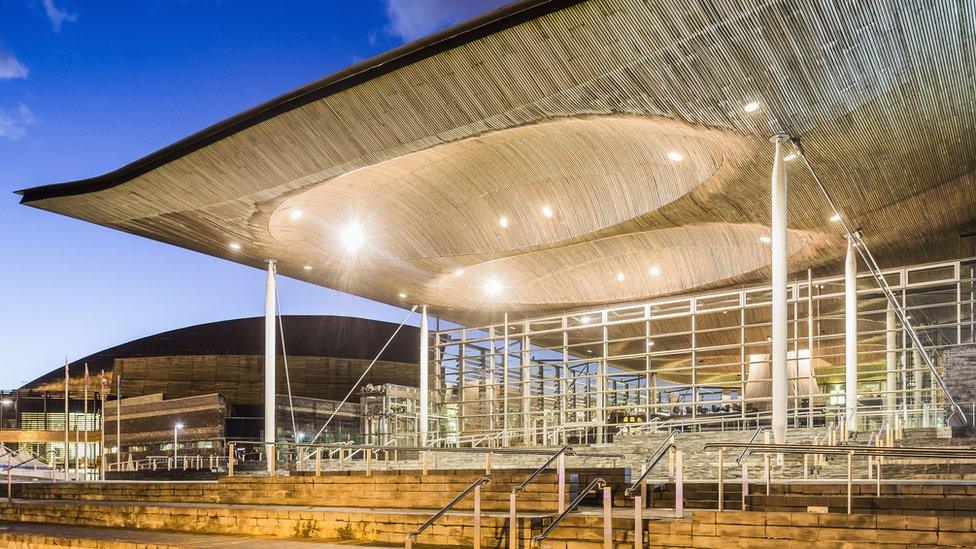Wales politics: Plans to increase Senedd to 96 members move closer
- Published
- comments
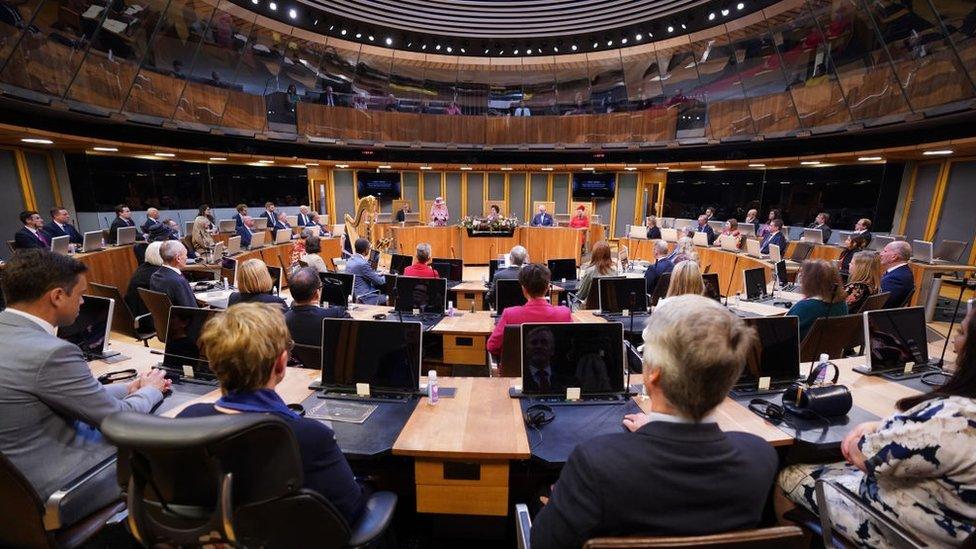
The committee also wants to see quotas on gender by 2026
Plans to increase the number of Senedd members from 60 to 96 have moved a step closer.
A Senedd committee backed the expansion, proposed by Labour and Plaid Cymru, saying the case for change was "urgent".
The Committee on Senedd Reform, external also agreed with plans to introduce gender quotas in time for the 2026 election.
The Welsh Tories in the Senedd said the conclusions were "no surprise" and are "out of touch".
Senior Conservatives, including Welsh Secretary Simon Hart, have called for any Senedd expansion plans to be put to a referendum.
Earlier this month Labour and Plaid Cymru announced a plan to increase the number of MSs as part of their co-operation agreement in the Senedd.
Under these plans Wales would be divided into 16 constituencies, with six MSs elected from every constituency under the d'Hondt form of proportional representation, external currently used to elect the Senedd's regional members.
All political parties were invited to pass on their ideas to the committee, which has been asked to explore the idea of reforming the Senedd.
"Our report sets out a plan for a strengthened parliament which will provide a stronger voice for the people of Wales," the committee's chair Huw Irranca-Davies said.
"Today's Senedd is very different to the institution that was established over 20 years ago.
"It can now make laws and set Welsh taxes, issues which affect the lives of every single person in Wales.
"With greater powers must come greater accountability.
"We need a parliament that can effectively scrutinise the decisions taken by the Welsh government, on behalf of the public it serves.
"The current system doesn't allow that to be done as well as it should be."
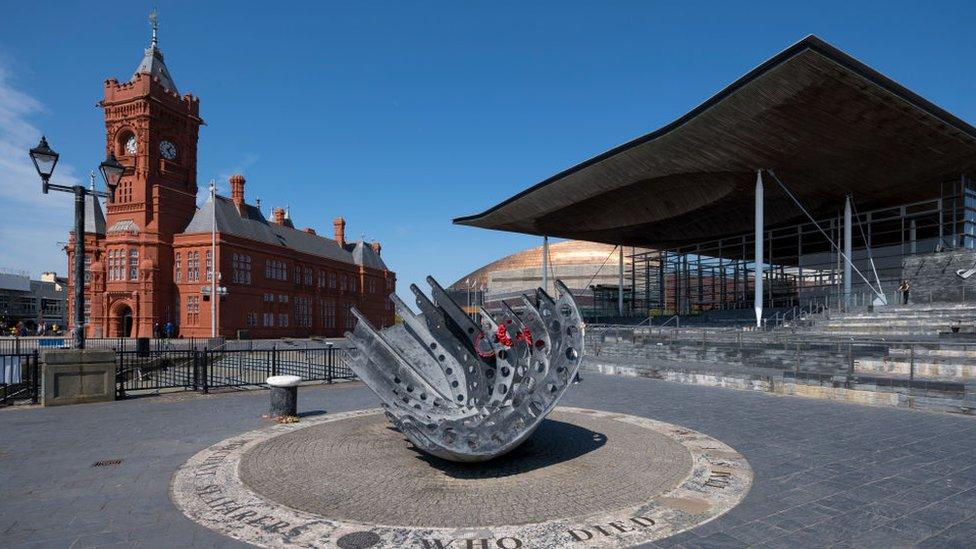
The committee report will be debated in the next fortnight
Conservative Shadow Minister for the Constitution Darren Millar said the contents of the report from the committee were of "no surprise".
"They simply regurgitate the instructions given to Labour and Plaid members of the committee by their party leaders," he said.
"The people of Wales have not had their say on these detailed proposals.
"They have not endorsed a voting system which severs the direct accountability of their elected representatives and gives political parties more power to impose their candidates on local people and nor have they given a green light to a system which promotes one aspect of diversity over another."
The press release from the Welsh Conservatives in the Senedd did not repeat the call, originally made by Simon Hart, for a referendum on the plans.
Mr Millar told BBC Wales there was a "pretty strong case" for a referendum "given the scale and significance of these changes" and Welsh Conservatives are "actively considering whether to champion that".
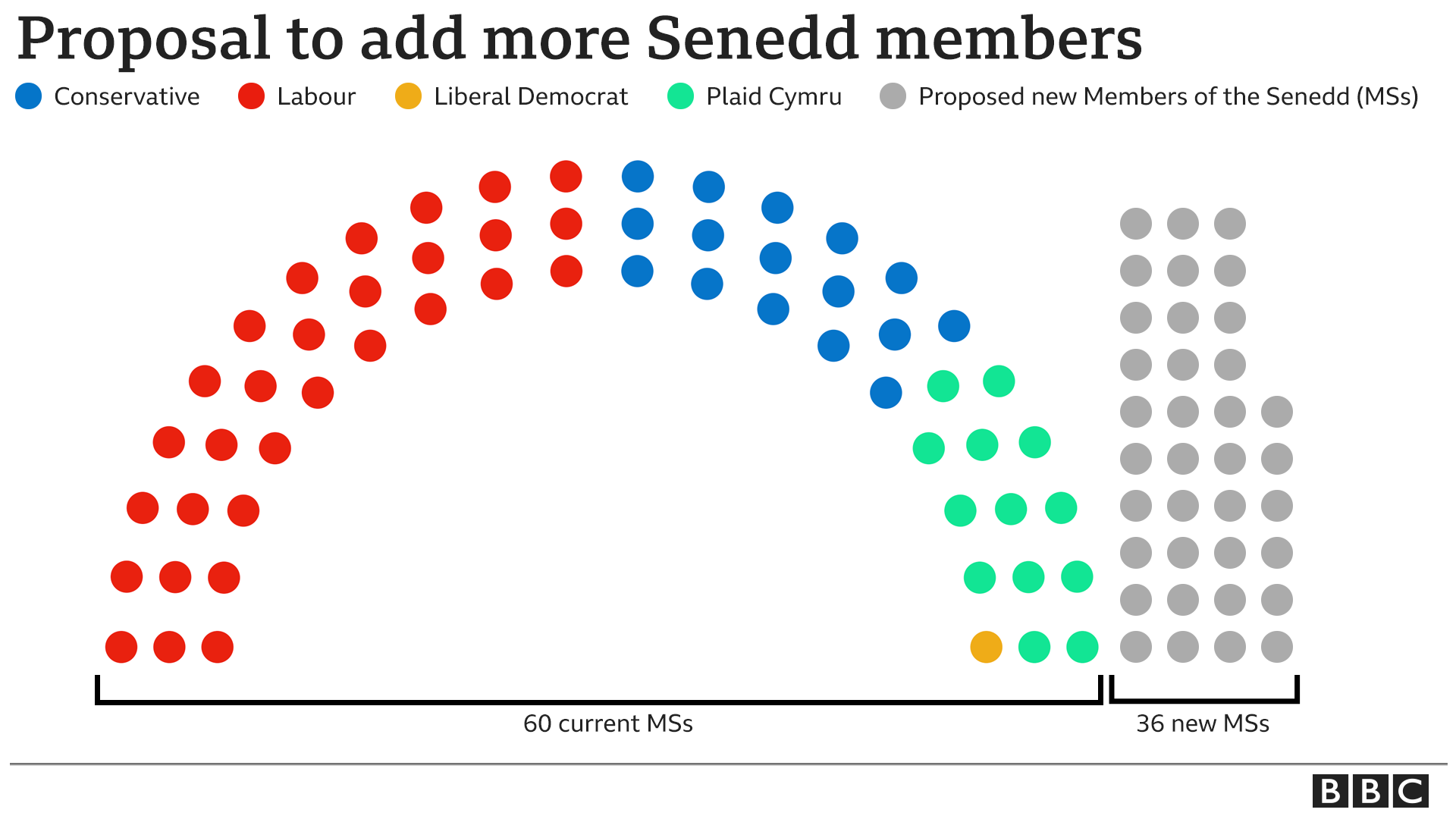
When Labour and Plaid Cymru announced their plans for expansion ahead of the conclusion of the committee's work, it led to the resignation of its Conservative member Darren Millar.
Mr Millar accused the two parties of having undermined the committee's work.
Speaking to BBC Wales, Mr Irranca-Davies said those plans set out by Labour and Plaid Cymru "didn't tie our hands at all" but had been "helpful" to know where the parties stood.
The committee's report also acknowledges that the Plaid Cymru and Liberal Democrat representatives had expressed reservations about the proposed electoral system to be used.
Jane Dodds, Welsh Liberal Democrat leader, said she "strongly" supported the expansion to 96 members but single transferrable vote (STV) would be "fairer, less complicated" and give voters "more choice".
Plaid Cymru's Rhys ab Owen said STV was his party's policy but he said Plaid was "delighted" that a majority of its priorities had been delivered.
Under single transferrable vote candidates can be individually ranked by preference - the committee has backed a closed list system, where voters can only vote for the party they want to support.
However according to Mr Irranca-Davies, the committee's final report and recommendations were signed off by all current members.
It has been estimated that adding an additional 30 MSs would cost around £12m per year.
On that basis the Welsh Conservatives have long opposed Senedd expansion, believing other issues should be given priority.
Members within the party also called any expansion plans to be put to a public vote.
Mr Irranca-Davies described the call as an "interesting gambit" that "doesn't hold water at all", adding that Senedd reform had featured in three of the parties' manifestos.
For any changes to be come into force, they would need to be approved by two thirds of current Senedd members.
Between them, Labour and Plaid Cymru would have enough votes to achieve this.
Mr Irranca-Davies called on the Welsh government to put these changes into law next summer, in the hope it can be passed by 2024, to allow adequate preparations for the 2026 election.
His committee's report is expected to be debated by the Senedd in the next fortnight.


The main recommendations in this report are identical to the proposals agreed between Welsh Labour and Plaid Cymru that were published two weeks ago.
For the changes to happen, it needs a super majority in the Senedd - that means two thirds of members must support it.
With the Conservatives opposed to an increase in Senedd members, Mark Drakeford and Adam Price are the only ones who can provide the votes to get reform through.
Arguably it would have been pointless for the committee to recommend action that the Labour and Plaid leaders wouldn't support.
The committee chair denies they tied his hands, but at the very least they stole his thunder.
Related topics
- Published8 May 2024
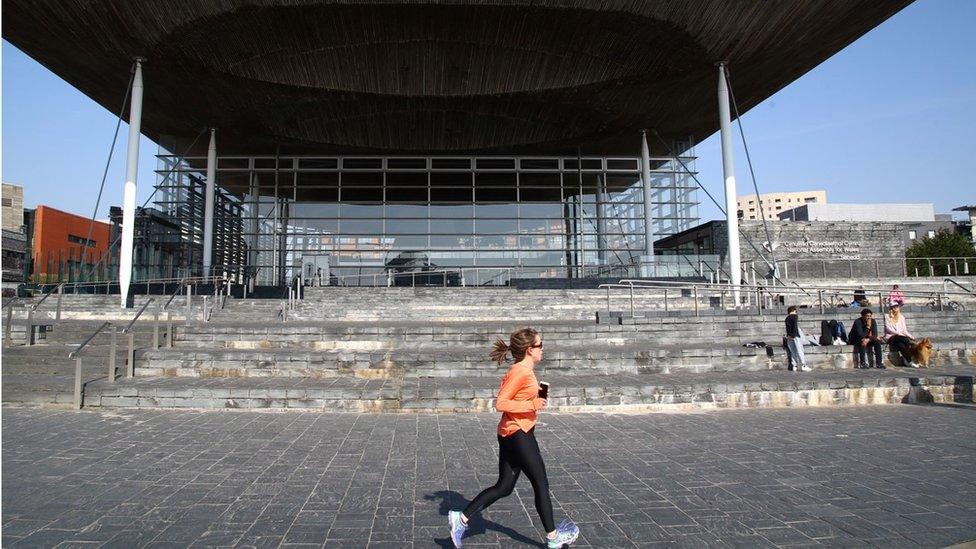
- Published25 May 2022

- Published12 May 2022
